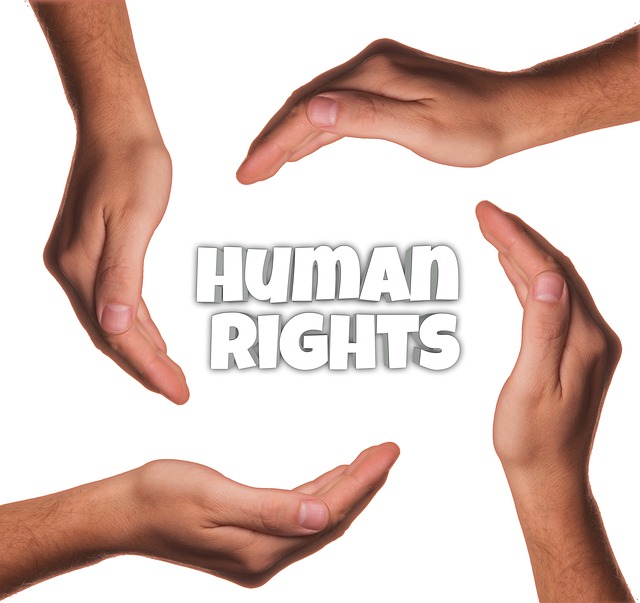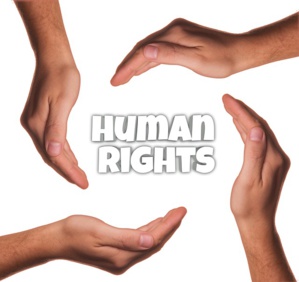Dailycsr.com – 13 May 2016 – Human Rights’ transparency in the supply chain is becoming an important issue in the CSR field. The “Corporate Human Rights Benchmark”, in short CHRB, has come out with its “Pilot Methodology” that deal with the human right issues in the said scenario after gathering information for over four hundred contributor.
In the month of November 2016, the CHRB will publicly release its first round’s report on the “benchmarking corporations on human rights performance”. The said report will cover hundred top companies chosen from the “agricultural products, apparel and extractive industries”.
In the beginning of this year, KnowThe Chain had come up with a “pilot benchmark” that dealt with forced labour and slavery. The same will be followed with another pilot benchmark on human rights, featuring twenty companies from ITC industry sector. In fact, KnowTheChain has further plans of following the results from the ITC sector with that of “food, beverage and apparel sectors”.
Sometimes in the year of 2010, the U.N’s HRC department or the Human Resource Council passed a bill endorsing “Professor John Ruggie's Guiding Principles” that dealt with business and related human rights issues. Thanks to these principles corporate were made aware of the requirements of bringing in “transparency on human rights issues”, which also looked after the angle of forced labour. The same now forms part of “sustainable investors and human rights advocates(’s)” agenda.
Moreover, consumers have also become more aware on the same issues and are “demanding more transparency” on the company’s part for maintaining their continuous support. One such example of “Thai fishing industry” has been enumerated by Ethicalperformance:
A study by fair labor NGO Verite revealed that fish coming from the Southeast Asia country, which exports $7bn worth of seafood per year, was enmeshed in a cycle of forced labor that affected most importers from Europe and the U.S., causing huge reputational damage to the companies involved”.
The practice of slavery has become one of the “major human rights issues” in the present world for it can be found in many of the companies’ supply chains. According to the data of the “International Labor Organization” from the year of 2010, there are as many as “21 million people” trapped into the cycle forced labour.
In order to deal with the slavery issues being practiced in the modern world, the government of the U.K. endorsed “its Modern Day Slavery Act”, while President Obama of the U.S. made his “Executive Order 13627” effective, whereby strengthening the “protections against trafficking in persons in federal contracting”.
References:
http://www.ethicalperformance.com/
In the month of November 2016, the CHRB will publicly release its first round’s report on the “benchmarking corporations on human rights performance”. The said report will cover hundred top companies chosen from the “agricultural products, apparel and extractive industries”.
In the beginning of this year, KnowThe Chain had come up with a “pilot benchmark” that dealt with forced labour and slavery. The same will be followed with another pilot benchmark on human rights, featuring twenty companies from ITC industry sector. In fact, KnowTheChain has further plans of following the results from the ITC sector with that of “food, beverage and apparel sectors”.
Sometimes in the year of 2010, the U.N’s HRC department or the Human Resource Council passed a bill endorsing “Professor John Ruggie's Guiding Principles” that dealt with business and related human rights issues. Thanks to these principles corporate were made aware of the requirements of bringing in “transparency on human rights issues”, which also looked after the angle of forced labour. The same now forms part of “sustainable investors and human rights advocates(’s)” agenda.
Moreover, consumers have also become more aware on the same issues and are “demanding more transparency” on the company’s part for maintaining their continuous support. One such example of “Thai fishing industry” has been enumerated by Ethicalperformance:
A study by fair labor NGO Verite revealed that fish coming from the Southeast Asia country, which exports $7bn worth of seafood per year, was enmeshed in a cycle of forced labor that affected most importers from Europe and the U.S., causing huge reputational damage to the companies involved”.
The practice of slavery has become one of the “major human rights issues” in the present world for it can be found in many of the companies’ supply chains. According to the data of the “International Labor Organization” from the year of 2010, there are as many as “21 million people” trapped into the cycle forced labour.
In order to deal with the slavery issues being practiced in the modern world, the government of the U.K. endorsed “its Modern Day Slavery Act”, while President Obama of the U.S. made his “Executive Order 13627” effective, whereby strengthening the “protections against trafficking in persons in federal contracting”.
References:
http://www.ethicalperformance.com/


 CHRB Sets Corporate ‘Pilot Methodology’ On Human Rights
CHRB Sets Corporate ‘Pilot Methodology’ On Human Rights





 Companies
Companies